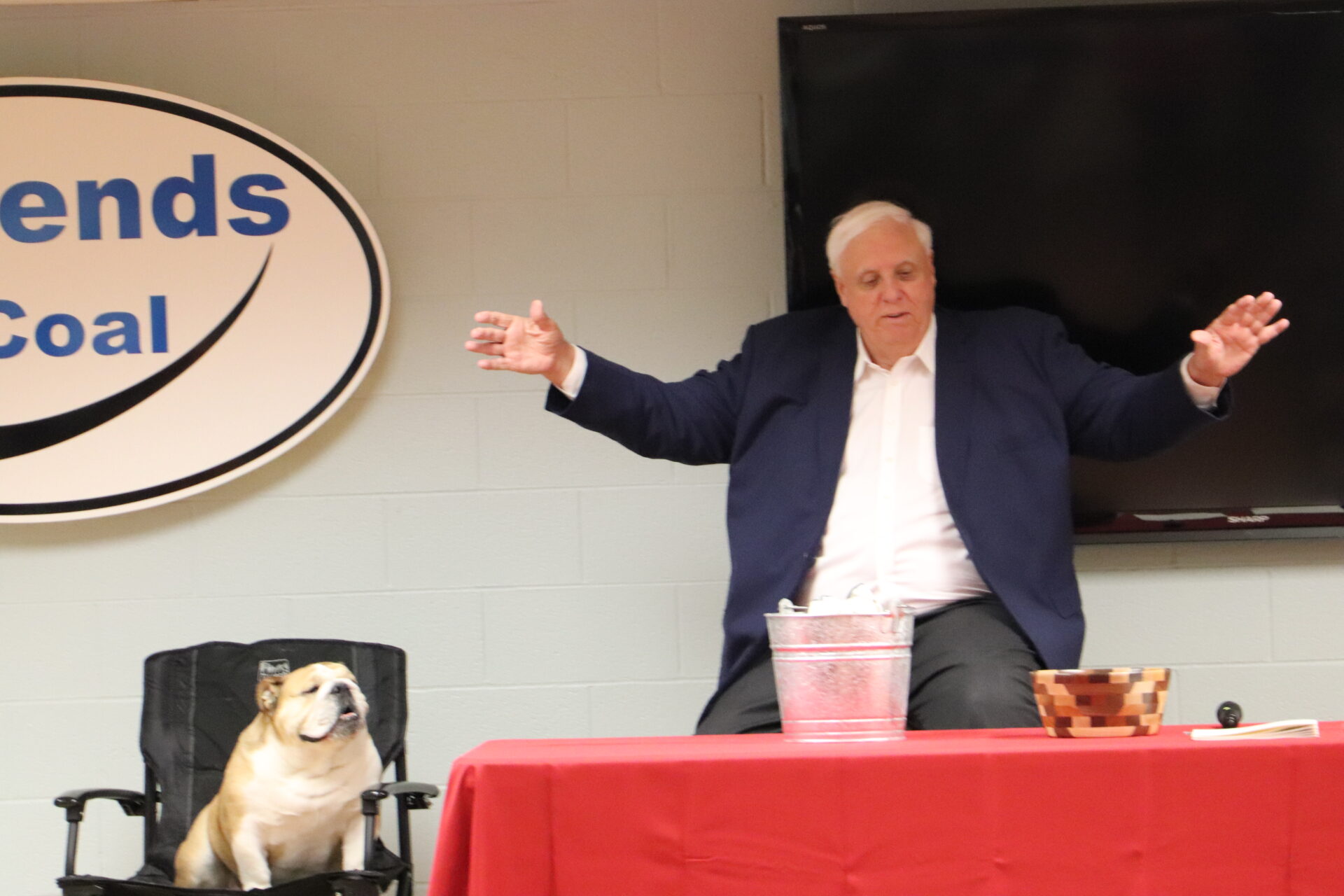The U.S. Justice Department is suing 13 companies owned by the family of Gov. Jim Justice over unpaid fines and fees.
Updated on Wednesday, May 31, 2023 at 3:15 p.m.
The U.S. Justice Department is suing 13 companies owned by the family of Gov. Jim Justice, alleging they failed to pay fines and fees for more than 100 mine reclamation violations from 2018 to last year.
The DOJ seeks to recover $7.6 million in civil penalties, administrative fees and interest from coal companies owned by the Justice family.
The DOJ alleges that the companies are in violation of the Surface Mining Control and Reclamation Act and the Abandoned Mine Land program.
Justice, a Republican, is seeking the U.S. Senate seat currently held by Democrat Joe Manchin.
In a briefing Wednesday, Justice suggested the suit could be politically motivated, with Democrats holding a narrow Senate majority.
“There’s a lot at stake right now,” he said. “The entire U.S. Senate could be flipped. And that’s what I intend to help make happen.”
Justice, who isn’t named in the complaint, ran the companies until he was elected governor in 2016. His son, James C. Justice III, or Jay, has run the companies since then and is named in the 128-page complaint.
Justice first faces a Republican primary with Rep. Alex Mooney next year. Manchin has not said if he’ll run for re-election.
Roman Stauffer, Justice’s U.S. Senate campaign manager, said in a statement that the DOJ complaint was political and that Democrats would prefer to run against Mooney.
“Joe Biden, Chuck Schumer, and the Democrats have seen the polls that show Jim Justice winning this race, and they’re panicking. So now the Biden Justice Department has decided to play politics. We will see a lot more of this as the Democrats work to help Alex Mooney because they know they can easily beat him,” Stauffer said.
Many of the Justice family companies are based in Roanoke, Virginia. The DOJ complaint was filed in the U.S. District Court for the Western District of Virginia.
Christopher Kavanaugh, the U.S. Attorney for the Western District of Virginia, was nominated by President Joe Biden in 2021 and confirmed unanimously by the Senate.
“Over a five-year period, defendants engaged in over 130 violations of federal law, thereby posing health and safety risks to the public and the environment,” Kavanaugh said in a statement. “Today, the filing of this complaint continues the process of holding defendants accountable for jeopardizing the health and safety of the public and our environment.”
A 2016 NPR investigation found that Justice’s coal empire owed $15 million in taxes, fines and fees in six states.
The Justice family coal companies’ legal troubles have continued well into his time as governor of West Virginia. Here are some recent examples:
In May, a U.S. District judge in Charleston ruled that a Justice coal company owed a retired miner and his spouse six years of health care premiums.
In April, the Fourth U.S. Circuit Court of Appeals in Richmond, Virginia, ruled that two Justice companies must pay $2.5 million in penalties for thousands of water pollution violations in several states.
In March, an Elkins bank went to court to demand the repayment of an $861,000 loan to a Justice company and asked the state auditor to garnish the governor’s paycheck to settle the debt.
In January, another Justice company settled a lawsuit over incomplete mine reclamation work in Southwest Virginia.
In December, a Justice company reached a settlement in Birmingham, Alabama, for nearly $1 million for air pollution violations from a coke plant it owns there.
In 2019, the Trump DOJ sued 23 Justice family companies, seeking $4.7 million in unpaid mine safety and health violations. The DOJ and the companies reached a settlement in April 2020.
In March, before Justice announced his Senate bid, The Wall Street Journal reported that he was considering a sale of part of the family coal business.
